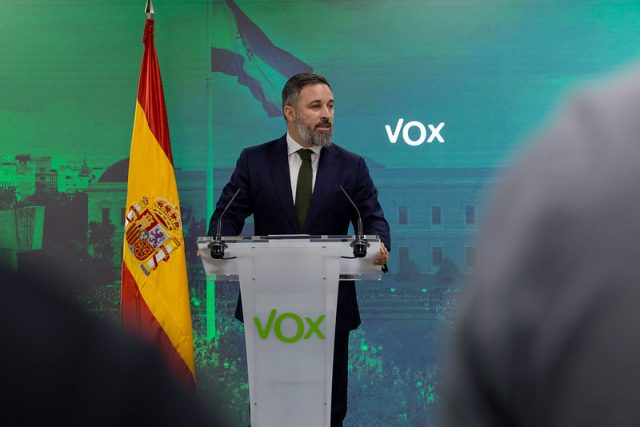
The Spanish left received its greatest blow on this Sunday’s local and regional elections. The Socialist Party of Spain (PSOE), led by Prime Minister Pedro Sánchez, suffered heavy losses in most Autonomous Communities and key cities, including Aragón, the Canary Islands, the Valencian Community, and some of the largest cities in Spain, like Sevilla.
The results reflect the growing discontent with Sánchez’s placation to the radical left and his open tolerance for separatist parties, some of which included former (convicted) terrorists in their lists for towns and municipalities in the Basque Country. The Spanish voters also punished the PSOE’s coalition partners, the far-left party of PODEMOS, effectively erasing them from dozens of local parliaments, including the Autonomous Community and the city of Madrid.
While the People’s Party (PP) (EPP) won most contests, the results give Vox (ECR) the upper hand in the long haul. The party led by Santiago Abascal doubled the number of votes. Back in 2019, 800 thousand Spaniards voted for Vox in the previous local elections. Over 1.6 million Spaniards supported Vox this Sunday. Vox went from 500 city councilors in 2019 to more than 1,700 last night. The number of MPs in the regional parliaments also went up from 47 to 119. That is a 153% increase. Moreover, Vox managed to penetrate spaces where it never had representation, like the regional parliament of the Autonomous Community of Navarra, and (crucially), Catalonia, where it increased its share of elected councilors from just 3 to more than 130. In short, Vox has experienced the fastest and largest growth of any political party of Spain in recent memory.
The results this week make Vox a necessary partner to build an alternative to the socialist-progressive consensus that has prevailed over the last four years. On the weeks leading to the regional elections, the PP had been toying with the idea of building coalitions with the PSOE. However, key leaders of the PP—most notably, the reelected President of the Autonomous Community of Madrid—are calling on their national party leadership to prioritize Vox over other parties to build coalition governments across the country. These negotiations ought to happen fast and without scandals, as the Prime Minister called for a snap (General) Election to be held on July 23. Sánchez is counting on a lengthy process for the two main parties of the right to come to an agreement. It is up to the PP to build an alternative with Vox quickly or reject Vox’s helping hand, giving Sánchez the advantage, and prolonging his grip on Spanish politics.
The events of this week are set to change the political landscape of Spain. First, for all intents and purposes, two political parties (one in the center and one in the far left) have been erased from the map, leaving just three main parties at the national level: PSOE, the PP, and Vox. Abascal’s Vox—the only survivor of the new wave of parties that surged in the middle of the last decade—has been the most vocal in its opposition to Sánchez’s PSOE. It is now the third main political force in Spain and offers voters sensible alternatives to the current status quo. Its growth during these contests will set the tone for the snap election two months from now and its role will be decisive in the reversion of the red wave that has stained the politics of Spain for too long.



 Subscribe
Subscribe